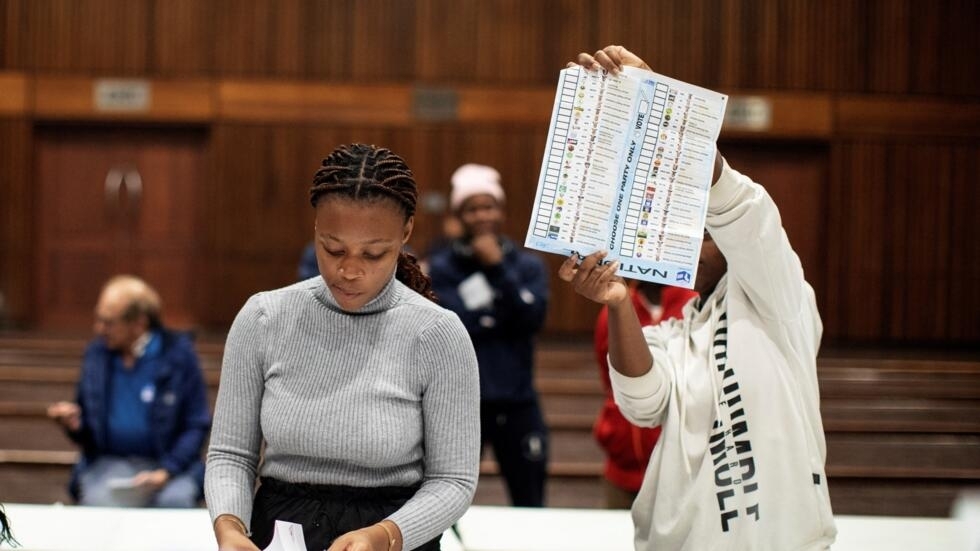The first results have been announced from what is seen as South Africa’s most closely fought elections since the African National Congress (ANC) came to power 30 years ago.
With results from around 19% voting districts counted so far, the ANC is leading with 43%, followed by the DA with 25%.
The radical EFF has about 9%, while the uMkhonto weSizwe Party (MK Party) of former President Jacob Zuma is on around 8%.
Final results are expected over the weekend.
The initial results suggest the ANC will lose its parliamentary majority for the first time since Nelson Mandela led the party to victory following the end of the racist system of apartheid in 1994.
South Africa’s News24 website has projected that the party’s final vote could be around 42%, down from the 57% it obtained in the 2019 election.
The initial results show that the ANC is suffering heavy losses to MK, especially in KwaZulu-Natal, bringing down its national vote.
KwaZulu-Natal is the home region of Mr Zuma, and the province with the second-highest number of votes.
Mr Zuma caused a major shock when he announced in December that he was ditching the ANC to campaign for MK.
Although he has been barred from running for parliament because of a conviction for contempt of court, his name still appeared on the ballot paper as MK leader.
Wednesday’s election saw long lines of voters outside polling stations late into the night across the country.
The key issues for voters were widespread corruption in government, high levels of unemployment and rampant crime. South Africa Election
One electoral official in Johannesburg told the BBC the queues were reminiscent of the historic 1994 election, when black people could vote for the first time. South Africa Election.
Also read: Bulawayo Plunged into Darkness as ZETDC Cuts Tower Lights, Sparking Security Concerns
Sifiso Buthelezi, who voted in Johannesburg’s Joubert Park – the biggest polling station in South Africa – told the BBC: “Freedom is great but we need to tackle corruption.”
Change has been a recurring sentiment, especially among young voters.
Ayanda Hlekwane, one of South Africa’s “born-free” generation, meaning he was born after 1994, said despite having three degrees he still doesn’t have a job.
“I’m working on my PhD proposal so that I go back to study in case I don’t get a job,” he tells the BBC in Durban.
For comments, Feedback and Opinions do get in touch with our editor on WhatsApp: +27 82 836 5828

For comments, Feedback and Opinions do get in touch with our editor on WhatsApp: +44 7949 297606.
